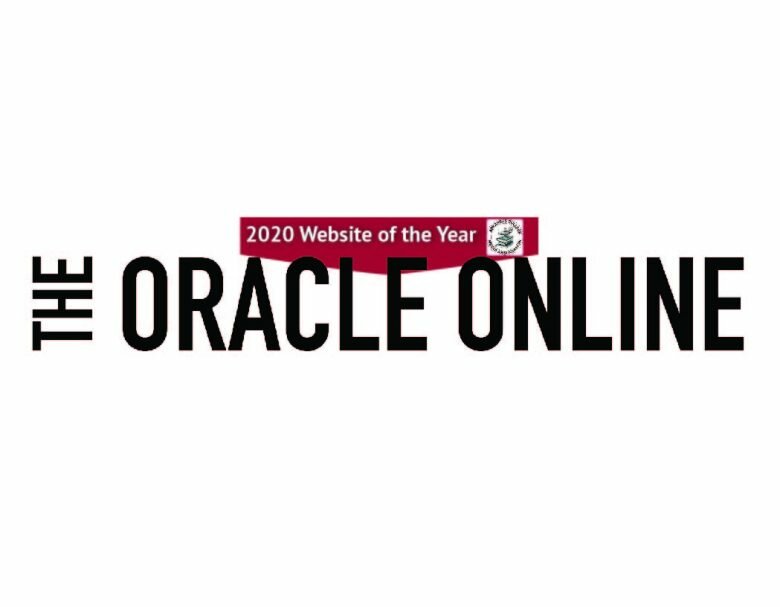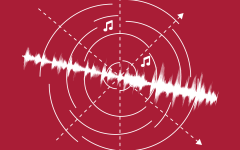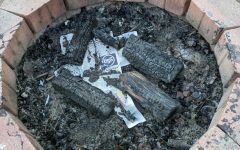Another pandemic: Who’s health matters?
A bust of Donald W. Reynolds was adorned with a cloth mask on the first day of class in the Reynolds Sciene Center at Henderson.
It was about 9:50 a.m. Monday morning, the first day of classes for the semester at Henderson. My first class was about to begin in Reynolds Science Center. As I entered the hallway to look for room 120, I heard a professor accosting two students saying that masks are to “protect others.” It occured to me at that moment that no mask can protect from overreactions.
I brushed it off as just another example of someone going way over the top. Yelling at someone for not wearing a mask won’t save anyone’s lives, but I’m not going to make a scene in response to someone else’s argument.
When we see someone being berated in the public square over the wearing of masks, we often look the other way. It’s like a mother spanking her child in the supermarket. We keep our heads down, don’t make eye contact, try not to speak as we pass and tell ourselves that it’s none of our business, just so we can make our comments to the people in our circle later.
The children of the COVID generation have suffered greatly at the hands of lockdowns and virtual learning. Children and teen suicides have risen dramatically across the country since the pandemic began.
The message all around them for the past almost two years is that you can’t visit family, you should stay away from your friends, we’re all helpless and we’re all doomed.
Yet, there has been no program created during the pandemic for our children’s mental health or the very real circumstances they deal with during lockdowns.
My call to the responsible adults of today is to not sacrifice our children on the altar of COVID-19. The church of Fauci and Pope Biden won’t be able to fix the problems we’re creating today once the pandemic is over.
I don’t like the precedent that has been set for treating our fellow man and the youths of the COVID era. We need to pay more attention to what’s happening around us. It’s harder than it has ever been to notice the telling signs of abuse because kids are staying home for weeks at a time and abusers are getting used to using them as punching bags.
Going virtual can be a prison sentence to students around the nation as school and other public spaces can sometimes be a child’s only relief from mistreatment. Even with the Delta variant, we need to consider long and hard if going virtual once more will do more damage than good.
In 2019 Arkansas had a rate of 12 children per 1,000 of reported abuse and neglect, which is higher than the national average of 8.9. That’s about 1%. There is not enough data for 2020 or 2021.
If you know someone under the age of 18 that is being abuse or neglected, call the Arkansas Child Abuse Hotline at 1-800-482-5964.
I'm from Malvern, Arkansas and I'm an Innovative Media major. My minor is in Sociology. I went from being a stagehand to being a student. I like to travel, play music and skateboard.
My goal is to become...











